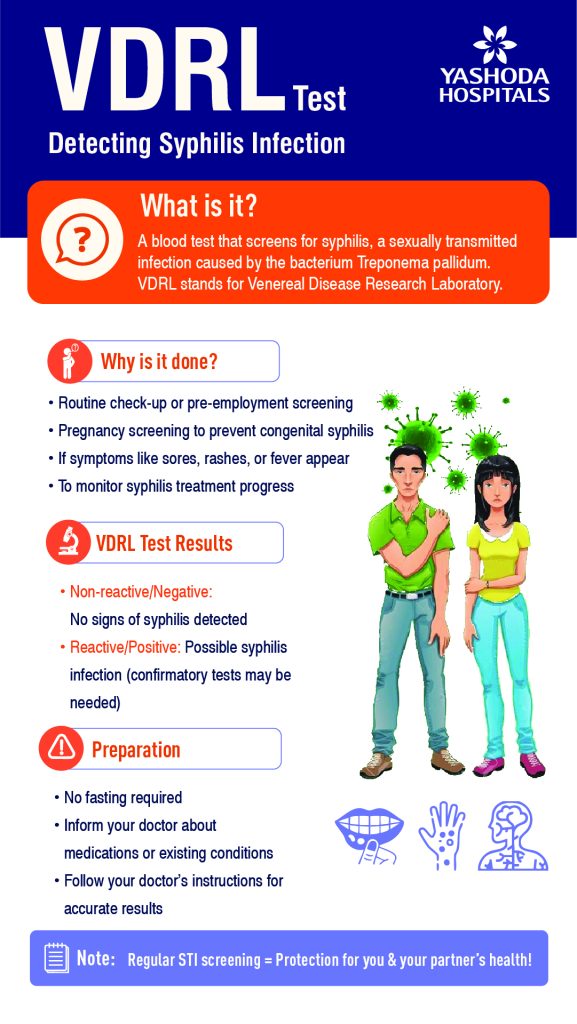What is VDRL Test?
VDRL stands for Venereal Disease Research Laboratory test. It is a screening test for Syphilis. It measures antibodies or proteins that the body produces in response to Syphilis-causing bacteria, Treponema pallidum. Your doctor might recommend this test if you have signs and symptoms of Sexually Transmitted Diseases (STD). It is a routine part of prenatal care during pregnancy. A tourniquet is applied, the area is disinfected, and blood is drawn through venipuncture into an air-tight vial or syringe. The sample is then prepared and analyzed according to the test. Spinal fluid can also be used for the test; however, blood tests are more common.
What is the VDRL Test used for?
A VDRL test is used as a screening test for Syphilis. It detects the presence of antibodies or proteins the body produces in the presence of Syphilis-causing bacteria. Blood is drawn from the inner side of the elbow or back of the hand through venepuncture and stored in an air-tight vial or syringe. The sample is then prepared and analyzed to detect Syphilis causing bacteria.

Understanding the test results of the VDRL Test?
The results of a VDRL Blood test might either be positive or negative. When the result is negative, no Syphilis antibodies were detected in the blood sample. The test is positive, most likely in the secondary or latent stages of Syphilis. There are chances the result is a false-negative when tested in the initial stages of Syphilis infection.




 Appointment
Appointment WhatsApp
WhatsApp Call
Call More
More